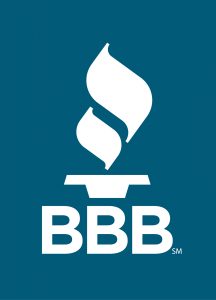BBB: Be Wary of Scams While Donating Hurricane Aid
 Hurricane Harvey has brought more than 20 inches of rain to southeast Texas, causing unprecedented flooding with another 15 to 25 inches of rain expected in days to come, according to the National Weather Service.
Hurricane Harvey has brought more than 20 inches of rain to southeast Texas, causing unprecedented flooding with another 15 to 25 inches of rain expected in days to come, according to the National Weather Service.
Many people in need will seek help in the form of fundraising appeals and the Better Business Bureau (BBB) and BBB Wise Giving Alliance advise people to help as much as possible in the relief effort, but to do so with caution.
“The devastation caused by Hurricane Harvey prompts us to do what we can to help as soon as possible,” said H. Art Taylor, president and CEO of BBB Wise Giving Alliance, “but donors need to be aware of some key cautions so that their generosity will get to those in need quickly.”
BBBs are already seeing crowdfunding appeals that may be scams, and the organization advises people to keep a lookout for “storm chasers” looking to make money through fraudulent appeals in the days ahead. Consumers can report suspected scams to BBB Scam Tracker or the Texas Attorney General’s hotline at 1 (800) 621-0508 or by email at [email protected].
BBB Wise Giving Alliance suggests that donors keep the following tips in mind when donating to help those affected by the storm:
1. Verify the trustworthiness of soliciting relief organizations by visiting Give.org to access free reports that specify if the charity meets the 20 BBB Standards for Charity Accountability.
2. See if the charity has an on-the-ground presence in the impacted areas. Unless the charity already has staff in the affected areas, it may be difficult to bring in new aid workers to provide assistance quickly. See if the charity’s website clearly describes what the charity can do to address immediate needs.
3. Find out if the charity is providing direct aid or raising money for other groups. Some charities may be raising money to pass along to relief organizations. If so, consider giving directly to those that have a presence in the region, or research the ultimate recipients of the donations to see whether they are equipped to provide aid effectively.
4. Be cautious about gifts of clothing, food or other in-kind donations. In-kind drives for food and clothing may not be the quickest way to help those in need unless the organization has the staff and infrastructure to distribute such aid properly. Ask the charity about its transportation and distribution plans. Be wary of those who are not experienced in disaster relief assistance.
5. Understand crowdfunding. Keep in mind that some crowdfunding sites do very little vetting of individuals who decide to post for assistance after a disaster, and it is often difficult for donors to verify the trustworthiness of crowdfunding requests for support. If you decide to contribute via crowdfunding, it is best to give to people who you personally know that have posted requests for assistance.
6. Phases of disaster relief. Remember that every disaster has several phases: rescue, emergency relief and recovery. Each part relies on public support and continuing funding for success. The need for donations doesn’t stop when the headlines do.
7. Recovery timeline. For many communities, recovery will be a long-term activity that can take many months or years to accomplish, depending on the extent of the damage. Those truly concerned about helping communities bounce back will have many opportunities to help.
8. Disaster planning. Although it may seem obvious, no one wants to experience a repeat performance of a disaster. Areas that work toward recovery will probably also need to develop plans to better respond to a similar storm in the future. Even those that already had measures in place can find ways to improve based on experience.
The following is a list of BBB Accredited Charities (organizations that meet the 20 BBB Standards for Charity Accountability) that are raising funds for Hurricane Harvey relief assistance. This list will be updated as additional relief efforts come to BBB WGA’s attention.
- American Red Cross
- AmeriCares
- Church World Service
- Direct Relief
- GlobalGiving Foundation
- Humane Society of the United States
- Islamic Relief USA
- MAP International
- Operation USA
- Salvation Army
- Save the Children
- United Methodist Committee on Relief
- United Way of Greater Houston








